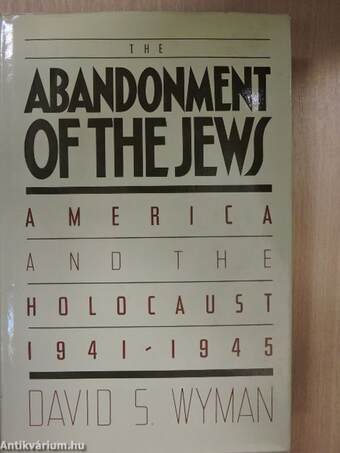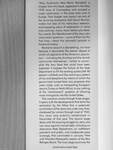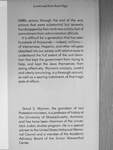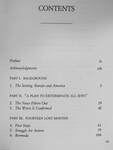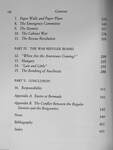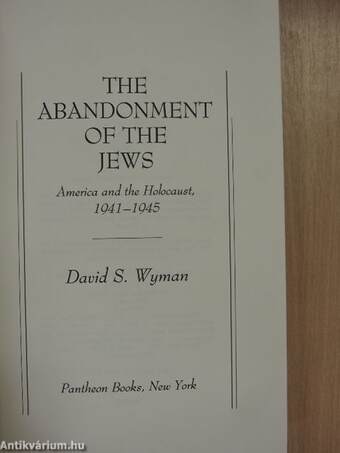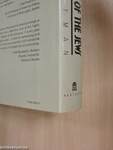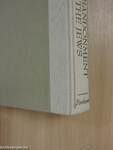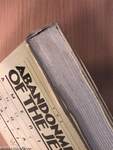1.062.439
kiadvánnyal nyújtjuk Magyarország legnagyobb antikvár könyv-kínálatát

VISSZA
A TETEJÉRE
JAVASLATOKÉszre-
vételek
The Abandonment of the Jews
America and the Holocaust, 1941-1945
| Kiadó: | Pantheon Books |
|---|---|
| Kiadás helye: | New York |
| Kiadás éve: | |
| Kötés típusa: | Félvászon |
| Oldalszám: | 444 oldal |
| Sorozatcím: | |
| Kötetszám: | |
| Nyelv: | Angol |
| Méret: | 24 cm x 16 cm |
| ISBN: | 0-394-42813-7 |
naponta értesítjük a beérkező friss
kiadványokról
naponta értesítjük a beérkező friss
kiadványokról
Fülszöveg
"Why Auschwitz Was Never Bombed," a chapter from this book, appeared in the May 1978 issue of Commentary and aroused a major controversy in the press here and in Europe. That chapter was typical not only of the stunning revelations that Dávid Wyman makes but alsó of his meticulous research, encompassing years of expioration in somé sixty archives, many never before plumbed. As a result, The Abandonment of the Jews asks many basic questions—somé of them for the first time—about this shameful episode in America s history.
Wyman's account is devastating, not least because it documents the precise degree to which all segments of the American population—inciuding the churches and the Jewish community themselves—fai led to accom-plish the very least that could have been expected. It exposes the failure of the State Department to fill the existing quotas (left 90 percent unfilled) and the continuous pattern of lies and deceptions by means of which the government turnéd back any... Tovább
Fülszöveg
"Why Auschwitz Was Never Bombed," a chapter from this book, appeared in the May 1978 issue of Commentary and aroused a major controversy in the press here and in Europe. That chapter was typical not only of the stunning revelations that Dávid Wyman makes but alsó of his meticulous research, encompassing years of expioration in somé sixty archives, many never before plumbed. As a result, The Abandonment of the Jews asks many basic questions—somé of them for the first time—about this shameful episode in America s history.
Wyman's account is devastating, not least because it documents the precise degree to which all segments of the American population—inciuding the churches and the Jewish community themselves—fai led to accom-plish the very least that could have been expected. It exposes the failure of the State Department to fill the existing quotas (left 90 percent unfilled) and the continuous pattern of lies and deceptions by means of which the government turnéd back any proposals that were made, such as transporting European Jews to Turkey or North Africa, to say nothing of the "controversial" question of allowing more immigrants into the United States.
The narrative moves through three stages: It opens with the developments that led to the realization by the Allies that a systematic annihi lation of the Jews was under way. Fore-shadowed by rumors through most of 1942, this news was publicly established in November of that year. The second stage deals with the ensuing struggle by Jews and non-Jews against myriad odds, inciuding an obstructive State Department, an indifferent president and public, and inadequate press coverage, that culminated in January 1944 with President Roosevelts creation of the War Refugee Board. The final stage examines the
(continued on back flap)
(continued from front flap)
WRB's actions through the end of the war, actions that were substantial but severely handicapped by theirtardinessand by lackof commitment from administration officials.
It is difficuit for a generation that has seen hundreds of thousands—indeed, millions— of Vietnamese, Hispanic, and other refugees absorbed into our society with relatíve ease to understand the full extent of the anti-Semi-tism that kept the government from trying to help, and kept the Jews themselves from acting effectively. Wymans analysis, careful and utterly con vinci ng, is a thorough account, as well as a searing indictment, of that tragic state of affairs.
Dávid S. Wyman, the grandson of two Protestant ministers, is a professor of history at the University of Massachusetts, Amherst, and has twice been chairman of the univer-sitys Judaic studies program. He is a special adviser to the United States Holocaust Memóriái Council and a member of the Academic Advisory Board of the Simon Wiesenthal Center. Vissza
Témakörök
- Idegennyelv > Idegennyelvű könyvek > Angol > Történelem > USA története
- Történelem > Idegennyelvű > Angol
- Történelem > Politika > Külpolitika > Egyéb
- Történelem > Politika > Belpolitika > Kisebbségi kérdés
- Történelem > Kontinensek szerint > Amerika, amerikai országok története > Észak-Amerika
- Történelem > Legújabb kor > II. világháború > Holokauszt
- Történelem > Tanulmányok



